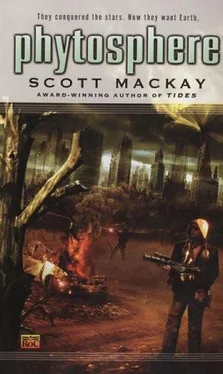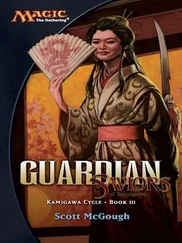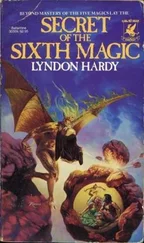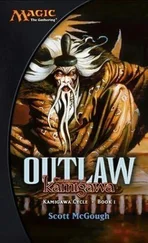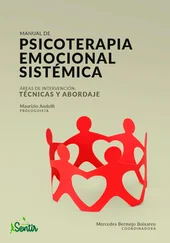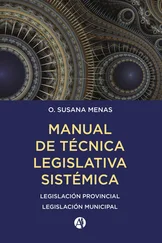“You’re on weak ground, Kafis. You obviously never expected us to respond with such overwhelming force, and now you’re on the run. You can’t go dictating.”
“Nonetheless, we will stake these claims if life support on the mothership becomes unviable.”
“Then let me give you some advice. You shouldn’t molest any of the local population when you go down. Humans hate that more than anything in an invading alien. Especially in good ole Georgia. If you’ve got to take over, just take over nicely, and try to help everybody.”
“Our survival will be our sole priority.”
“So you understand after all?”
Kafis gave him a double take. “Understand what?”
“How this is about survival.”
“Human, you exhaust me.”
“You exhaust me too, Kafis.”
Ian came to his room much later, just as he was going over the more recent views of the phytosphere, the ones with the toxin holes. Ian was like a caged animal and all he could do was pace in front of the twin beds, stopping occasionally to look at the dark lunar surface, or turning around and gazing briefly at the lamp, always with a look of bewilderment in his eyes. Gerry didn’t know if Ian was here for a reason, or if he was here simply because he had to be somewhere. Sometimes Ian just…showed up. Was he drunk? Gerry didn’t think so. He couldn’t smell any booze.
Ian finally looked at Gerry. “This whole thing is spinning out of control.”
The anxiety in his friend’s voice was like the news the doctor gave you when you had a tumor. Gerry tried to rise to the occasion. He struggled to mount some semblance of courage. But he couldn’t help remembering his wife’s words: If anybody gets too close to the house, that’s it, Gerry, I’m not asking any questions. And then there was Kafis, spinning out of control as well, his strange alien pupils twitching in fear as he considered the unviability of TMS life support. Gerry tried to show courage but, after a visit from the aliens, courage eluded him—the Tarsalans might go down to Earth; they might go to Georgia, which was right next door to North Carolina. And Glenda wasn’t asking any questions.
“I thought we were going to beat it,” said Ian, still pacing.
He didn’t have to say more because his implication was clear—maybe they weren’t going to beat it after all.
Then it was one non sequitur after another from Ian. “God, I’ve done some horrible things in my life.”
Just out of the blue, as if, with that thing knitting itself around the Earth, he had finally found it in his soul to feel remorse. It didn’t matter that Gerry had no context; he understood it well, how the alcoholic could become a beast, how he could black out for hours at a time and have no memory of the abysmal things he had done. “Remember Maggie Madsen?” A pathetic chuckle, as if Maggie Madsen had been one of the bigger lost chances in his life.
“Ian, I thought we agreed we would never talk about Maggie again.”
“Remember that night in the pool?”
“That was her idea, not mine. I had no idea she was going to come up to me that way.”
“Yes, but you didn’t do anything to stop her, buddy, even though you knew she was going out with me.”
“You see what a bad thing alcohol can be?”
“If it was just that one night…but you stole her away from me.”
“And I regret it. I told you that. That’s why we don’t talk about her.”
“What ever happened to her? I wonder how she’s making out down there in the dark.”
“Last I heard, she’d married a car dealer in Norfolk.”
“Really? She always struck me as the more adventurous type.” Then came a whole sequence of, “What am I going to do, what am I going to do?”—the same six words uttered again and again, nonstop, a bizarre refrain wrapped in regret and anxiety. And still the pacing. Wearing out the rug. The clock moved, edging past midnight. Ian got more and more worked up, haunted by ghosts only he could see, driven—so much so that he finally punched the mirror, broke it, and drew blood.
“Jesus, Ian.”
“Sorry, buddy.”
Ian walked to the washroom and cleaned himself up. Gerry heard running water. He tried to concentrate on the stills of the phytosphere, but thought of the damned Tarsalans instead, coming all this way, reminding him of born-again Christians because they were all so smug, so sure of themselves, as if they
had seen the Kingdom of Heaven. Ian came out of the washroom. He had a white towel wrapped around his fist. He radiated desperation.
“But there’s still time, isn’t there, buddy?”
“Time for what?”
Ian became distracted by his own thoughts. He went to the refrigerator, got a little booze bottle, twisted the cap off, sucked the contents into his mouth, but then spit the whole works out, not bothering to swallow, and uttered a string of obscenities, telling Gerry he had to stop that stuff, stop that stuff, stop that stuff, like a man with bipolar disorder in the manic phase.
“That’s it, Gerry. I’m through with booze. I’m walking the straight and narrow from now on.”
“Sit down for a while. I’ll make some coffee.”
Gerry played a role he knew well—the role of sponsor—remembering his own sponsor, Pat Turnshek, an old guy he’d met first at Bellwood, then at all the meetings afterward. When his own demons haunted him, Pat would make coffee, the magic elixir of A.A. meetings, the thing that made everything all right, even when everything was horribly wrong. So he made coffee, and soon it was dripping into the pot.
Ian sat in one of the chairs and rocked, as nervous as could be. “I always manage to say the wrong thing, don’t I?” Another cryptic utterance, one Gerry couldn’t immediately make sense of. “How did you do it, buddy? How did you marry such a nice wife?”
How his wife got into it, Gerry wasn’t sure—Ian was all over the place.
He could have offered Ian the usual platitude, that he was lucky, but knew that it went far beyond luck, that it was his wife’s compassion and forgiveness, and that she wasn’t going to give up on him no matter how bad things got.
The test pilot motioned out the window. “I hate looking at it. It reminds me of all the terrible things I’ve done. I’ve got a lot to make up for, Gerry. I’ve got a whole list of bad things I’ve done to people. I’ve got to make things up in a hurry.” He motioned out the window. “Before we run out of time.”
Gerry stared at the coffeemaker. If they could all just drink enough coffee, maybe the phytosphere would disappear. Maybe the Tarsalans would go home. Maybe they would stay away from Georgia.
And North Carolina. Ian started talking about the Tarsalans: how they creeped him out, how it wasn’t natural for them to come all this way, and how sentient species were meant to stay on their own planets and make their own isolated homes surrounded by their own isolating light-years. And then it was back to Maggie Madsen again.
“In the pool, buddy. I couldn’t believe it.”
“Ian, I’m sorry about Maggie Madsen.”
But Ian bluffed, saying, no, that was all right, we were just kids, we didn’t know any better. “You’re unlikely to do the same thing again, aren’t you, buddy, steal a girlfriend out from under me?”
All Gerry could say was the same thing again. “Ian, I’m sorry.”
They lapsed into morose silence after that.
They sipped coffee.
Gerry tried to bolster Ian’s spirits by telling him it was never too late, and that Maggie Madsen wasn’t the only woman in the world.
But all Ian could do was sit there and shake his head. “That green thing over the Earth—it gives me a whole new outlook.”
Читать дальше
